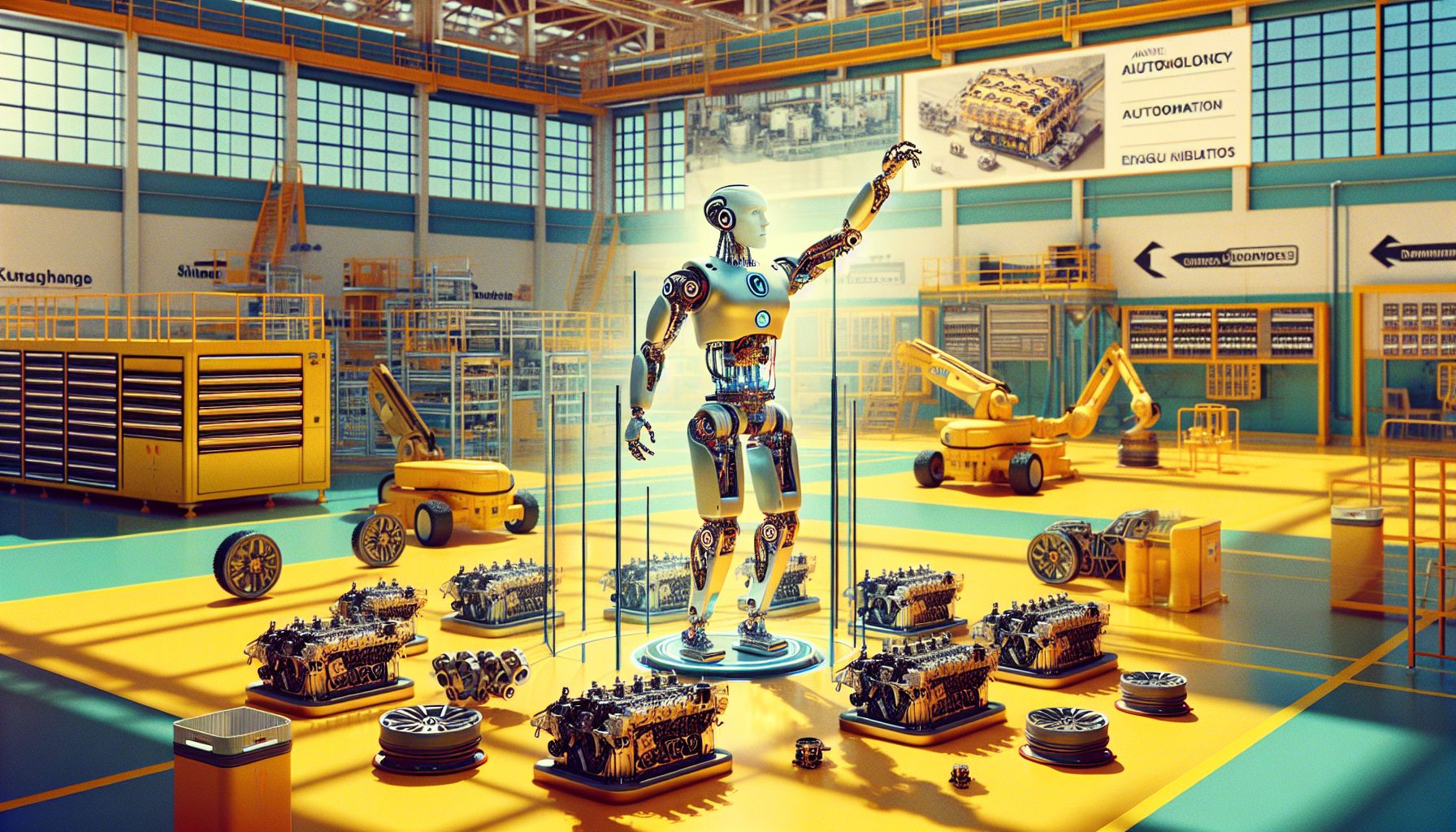Atlas Robot Autonomously Sorts Engine Parts in Factory Demo

Waltham, Thursday, 31 October 2024.
Boston Dynamics’ humanoid robot Atlas showcases advanced autonomy in a new video, performing complex tasks without human intervention. Using machine learning and vision models, Atlas navigates a simulated factory environment, adapting to changes and demonstrating unprecedented dexterity in object manipulation.
Breakthrough in Robotics: Atlas Operates Independently
In a groundbreaking demonstration of robotics technology, Boston Dynamics has unveiled a video of its all-electric Atlas humanoid robot executing tasks autonomously in a simulated factory setting. This marks a significant leap in the field of robotics, showcasing the robot’s ability to perform tasks without any human guidance. Atlas, equipped with machine learning vision models, is capable of detecting and adapting to its environment, allowing it to navigate and manipulate objects with remarkable precision and efficiency[1][2].
Technological Advancements: Machine Learning and Autonomy
The Atlas robot leverages advanced machine learning algorithms to conduct real-time environmental analysis, enabling it to autonomously determine the best course of action for each task. Unlike previous versions that relied on hydraulics, the new Atlas model operates using a fully electric motor, enhancing its range of motion and efficiency. This innovation allows Atlas to independently identify and manage objects, as seen in its ability to sort engine parts into various bins based on their locations[3][4].
Adapting to Unforeseen Challenges
One of Atlas’s most impressive features is its ability to handle unexpected situations. If a component doesn’t fit into a designated container, the robot can recalibrate its approach, adjusting its strategy to ensure successful task completion. This adaptability is made possible by a combination of vision, force, and proprioceptive sensors that work in tandem to provide Atlas with a comprehensive understanding of its surroundings[2][5].
Comparisons and Industry Impact
This demonstration comes shortly after Tesla revealed its own humanoid robot, Optimus, which was later found to be remotely operated by humans during its showcase. In contrast, Atlas’s autonomy is emphasized by Boston Dynamics, highlighting a key differentiation in the field of robotics. The company is based in Waltham, Massachusetts, and has a history of producing innovative robots, including the well-known Spot and Stretch models[1][3].
Future Implications
With the ability to autonomously perform complex tasks, Atlas is not only a marvel of engineering but also a potential harbinger of a new era in automation. This technology holds the promise of revolutionizing industries by decoupling productivity from human intervention, potentially leading to increased efficiency and reduced labor costs. As Boston Dynamics continues to refine and develop its technology, the implications for both industry and society are profound, signaling a shift towards more automated and intelligent work environments[4][5].

